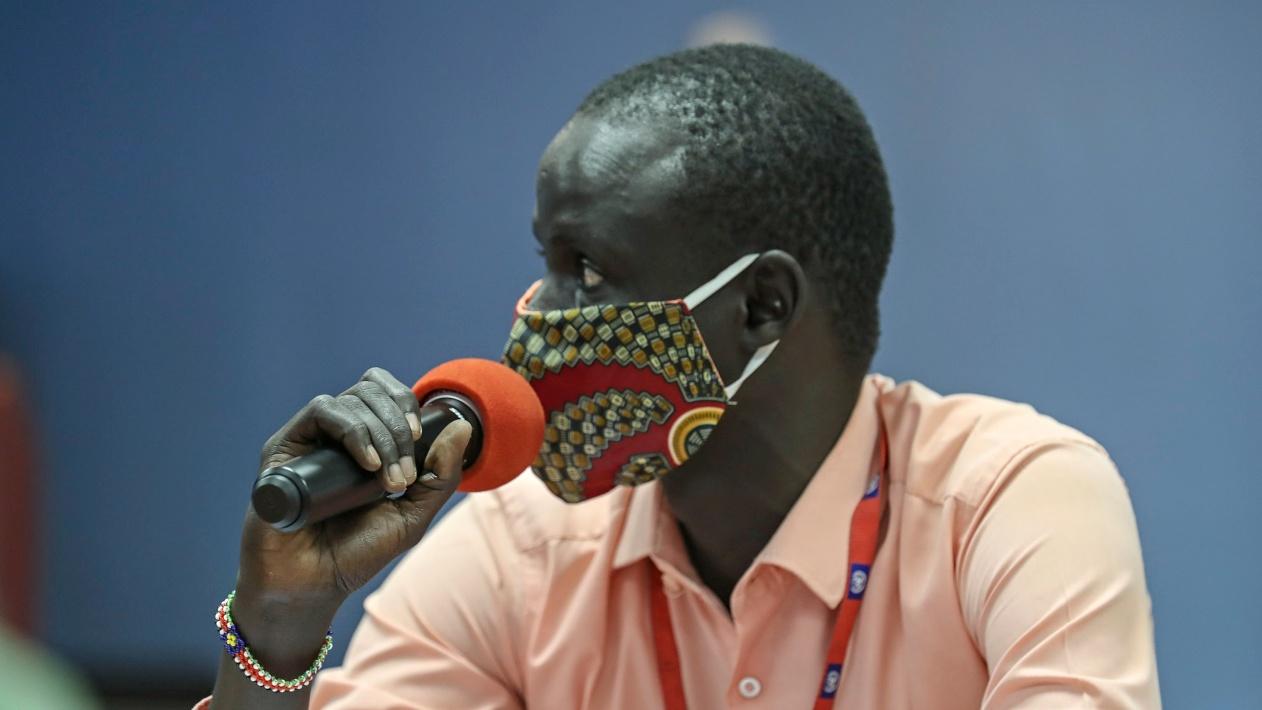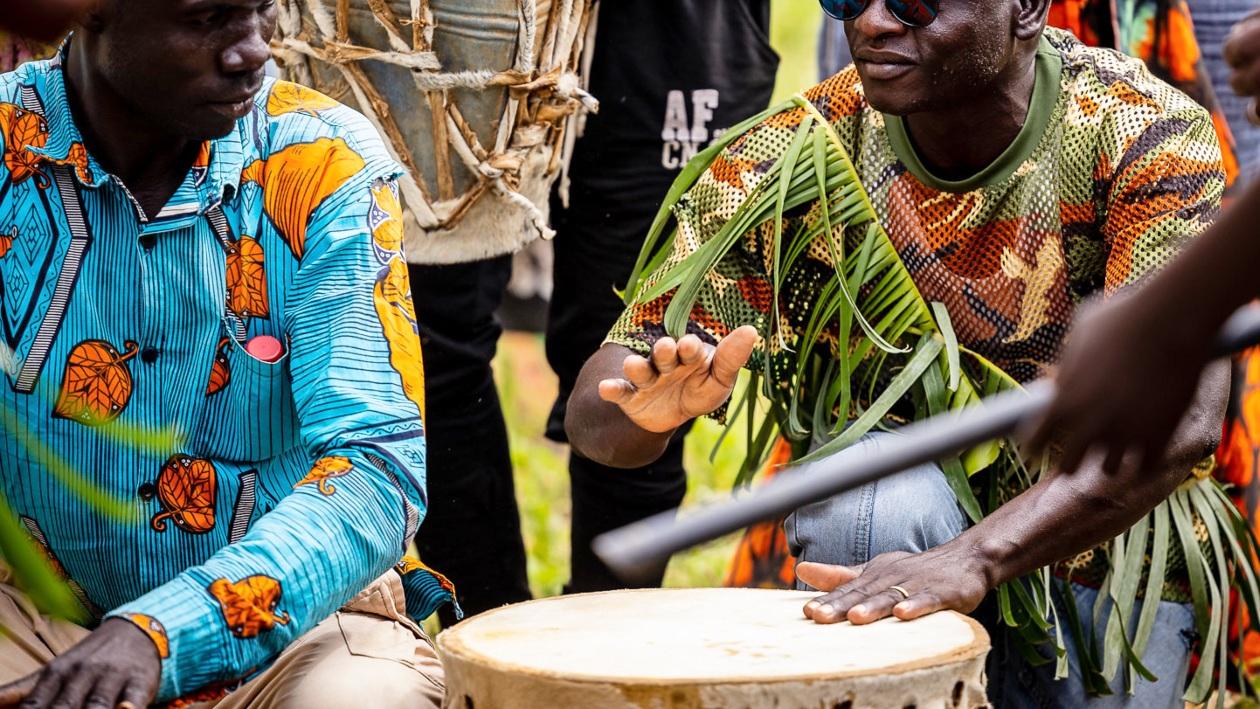In January 2021, the South Sudanese government announced the long-awaited Hybrid Court to bring accountability to the country’s conflict and purported war crimes. Researcher Abraham Diing talks to former soldiers, civil servants, youth groups and community elders in South Sudan to understand responses to the announcement, finding a mix of scepticism and concern for inflamed ethnic divisions.
This post is part of a series exploring ‘public authority’ based on research at LSE’s Centre for Public Authority and International Development at the Firoz Lalji Centre for Africa.
On the 30 January 2021, the government of South Sudan finally agreed to form the Hybrid Court, as stipulated in the 2015 Agreement on the Resolution of the Conflict in the Republic of South Sudan (ARCSS) and the 2018 Revitalized ARCSS. The court was one of the mechanisms proposed to deal with past abuses committed during more than six years of conflict in the country, alongside the Commission for Truth, Healing and Reconciliation (CTHR), and the Compensation and Reparations Authority (CRA).
The move was quickly welcomed by the international community. For example, the African Union Commission’s Chairperson, Moussa Faki Mahamat, sees the agreement as putting ‘an end to the delays in establishing the court, transitional justice, accountability, reconciliation and healing institutions in order to bring justice and healing to all South Sudanese.’ Similarly, South Sudanese researchers like Nyagoah Tut Pur view the move as ‘a glimmer of hope for South Sudan’s victims’. This announcement also generated debates on the ground among ordinary people.
To assess these views and uncover what people think of the court, I conducted interviews and focus group discussions in Juba, Bor and the Protection of Civilians (PoC) sites in Bor. I spoke with former Sudan People Liberation Army (SPLA) soldiers, youth groups, community elders, civil servants and active soldiers. The findings described below present mixed reactions towards the Hybrid Court. Broadly speaking, there is high apprehension and scepticism about the government’s ability to allow the court to successfully operate and, equally, the court’s ability to bring perpetrators of abuses to justice.
‘I know the commander whose soldiers killed my father, brother and my cousin, I know his family where they live in Juba. If the hybrid court gives him justice for other abuses and I don’t get justice I am coming after him and his family. I let it go because killing him and his family will not bring my relatives back but if he gets justice and I don’t then it is another matter.’
– A Dinka man and former SPLA soldier in Juba, South Sudan.
Forgiveness and reconciliation over opening old wounds
The majority of South Sudanese are tired of war, and many I spoke to believe the Hybrid Court will create another ethnic conflict. Everyone knows the SPLA-In Government, SPLA-In Opposition, various militias factions, different ethnic groups and their allied militias have committed different kinds of crimes and abuses. But few believe the court is going to identify the victims and perpetrators.
The simple argument I heard repeated was that everyone is a victim and a perpetrator. Most South Sudanese societies prefer forgiveness and reconciliation among warrying parties over individual punishment. In a society where revenge is a norm and where everybody knows who committed which atrocities, the Hybrid Court cannot be an appropriate approach for transitional justice during the current, delicate situation.
‘In 1991, when SPLA- Nasir came to my village and wiped out everything including my husband and son, I was angry and I am still angry, will the hybrid court give me justice?’
– A widow of 1991 SPLA-Nasir’s Bor Massacre, Bor, South Sudan.
‘If we go to the ballot box today, I’ll vote President Salva Kiir out, he has failed our country, he has instituted hatred, corruption, he has neglected our freedom fighters, our veterans, he has abandoned widows and orphans of liberation, he has destroyed our SPLM, our legacy. But if someone comes after him, hybrid court or anyone else, I will die first because he did protect me when I had no one. He fought for our country side by side with our Dr John Garang de Mabior. He is South Sudan, SPLM, Garang and Beny e Jieng, ‘a Dinka leader’. He cannot be humiliated when we are alive, it is impossible.’
– An assessment of the hybrid court by a former child soldier in Bor, South Sudan.
Putting the cart before the horse
Other people I spoke to asked how a government that presides over broken institutions, run by ethnic mercenaries, and which have lost legitimacy, will be able to see the court properly established. Surely, they argued, this makes a mockery of the victims and their families – a clear indication that transitional justice supporters and friends of South Sudan have no real desire to help the country.
Even if the court is established, people in government and among the grassroots are asking which atrocities the court will address. The ones committed in 2013? The ones committed in 1991? The ones committed by warlords? The ones committed by various ethnic militias? Who will be held accountable and who is going to trial them are pertinent questions. A Dinka, a Nuer, an Equatorian?
‘I fought Riek’s SPLA-Nasir in 1991 and I also fought Riek’s forces in 2013, I know exactly what happened. If I have authority, I will shut down the hybrid court because it is going to open wounds that cannot be closed.’
– An interview with a South Sudan People Defense Force soldier in Juba.
Answers risk the formation of alliances among the perpetrators, especially those currently in government, and plunging the country into fratricidal conflicts before the court’s sessions even begin. Already there are suspicions among those I consulted that the government and opposition are keeping the country in war so that they can remain in power. Some believed that the Hybrid Court will give these actors more reasons to cling on to power and avoid accountability.
The need for elections in South Sudan
People are aware of the situation in the country; they know what happened during periods of conflict; they know about the abuses committed; they know the victims and the perpetrators. The idea that some will be punished worries many because it is rarely acceptable to isolate an individual from his/her ethnic group. Furthermore, people will always protect their own, guilty or not, and this closing of ranks often leads to cycles of ethnic conflicts. For people in South Sudan, the path to stability and – maybe in the future – accountability is through elections.
To a former SPLA soldier I spoke to, the best approach is to let South Sudanese elect a leader who will open a path for transitional justice and, consequently, stability. As far as the civil population is concerned, the current leadership in Juba have lost trust and legitimacy.
‘I was shot four times in various Dinka-Nuer conflicts, they killed my relatives, we killed their relatives, now we are living and eating together despite the atrocities we committed against each other. I am worried about the opening of the wounds because the so-called hybrid court will not provide justice to everyone; it will never find out the real truth.’
– Interview with a former SPLA soldier in Bor.
‘Now is not the right time for the hybrid court, find us a way to choose our leader and stop trying to come after President Kiir because it can be messy.’
– Interview with a retired SPLA soldier in Juba.
Reconciliation without punishment
While the court’s potential is being romanticised in Juba, the grassroots is dreaming of an approach to peace that supports forgiveness, reconciliation and healing. People I spoke with argued it will be difficult to bring accountability when many perpetrators still hold positions of power, many powerful ethnic militias are uncontained, the government has lost legitimacy and the country remains divided along ethnic lines. For them, the lack of authority and institutions to enforce law and order will render the court ineffective.
‘Taking a nail hammer approach without a government that people believe in is a mistake, because after the hybrid court comes revenges, because no one will enforce law and order, the hybrid court should be the last phase of transitional justice.’
– Interview with a civil servant in Juba.
The Hybrid Court also lacks widespread understanding – seen as foreign, which opens space for perpetrators in position of power to manipulate it. Instead, people want an approach that is familiar. A sense of justice among many South Sudanese, especially the Dinka and the Nuer, is not about guilt and punishment per se but reminding people of their social obligations and responsibilities as members of society. That is why in many cases across the country people come together and agreed to stop conflict without calling for punishment.
Understanding justice from below
My respondents confirmed a common fear among many South Sudanese: conventional wisdom views transitional justice mechanisms as ineffective in a country where the government presides over a broken system awash with arms, divided along ethnic lines and lacking legitimacy. Hence, the international community and peace partners need to pressure the government to first address these issues through diplomatic means, including restricting the movement of war criminals and freezing their assets in neighbouring countries.
At the same time, the international community needs a better understanding of South Sudanese society’s ideas of justice through nuanced research among ordinary people. In addition, support for local peace and reconciliation mechanisms run by chiefs and churches could produce more substantive results than top-down approaches. These public authorities still have legitimacy among the population, including the youth that engage in conflicts organised by politicians.
Photo: UNDP Launches Pilot Projects for Recovery and Reconciliation in South Sudan. UN Photo/JC McIlwaine. 20 October 2014. Juba, South Sudan. Photo # 608079. Licensed under CC BY-NC-ND 2.0.





